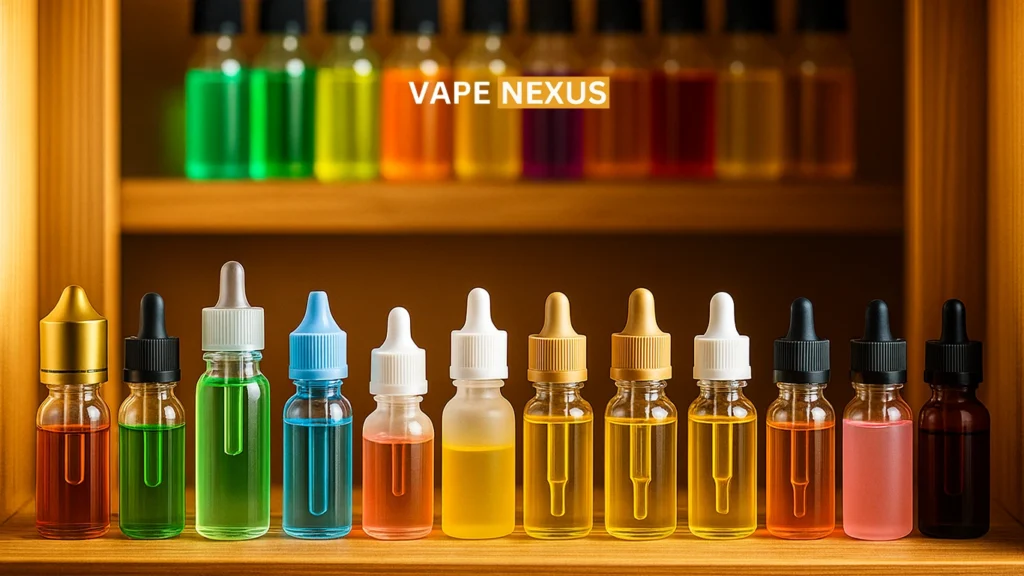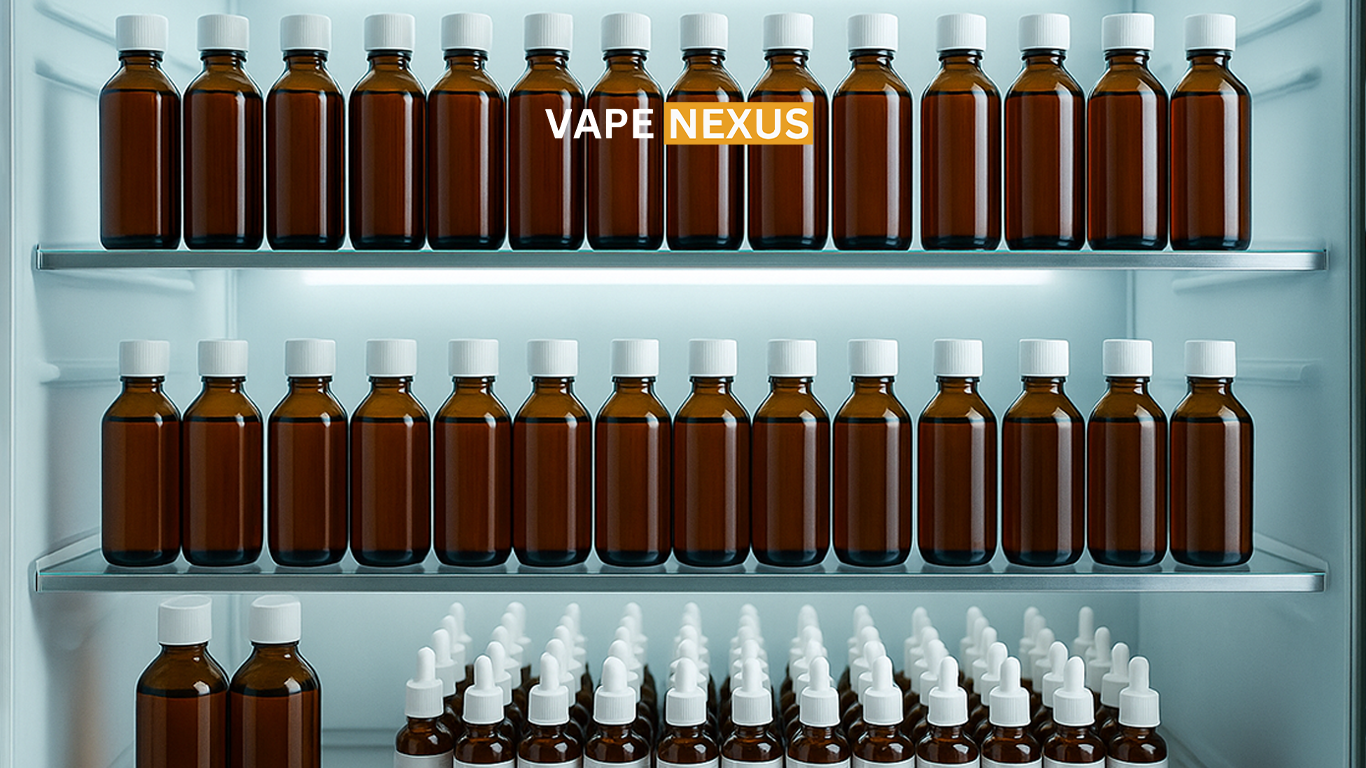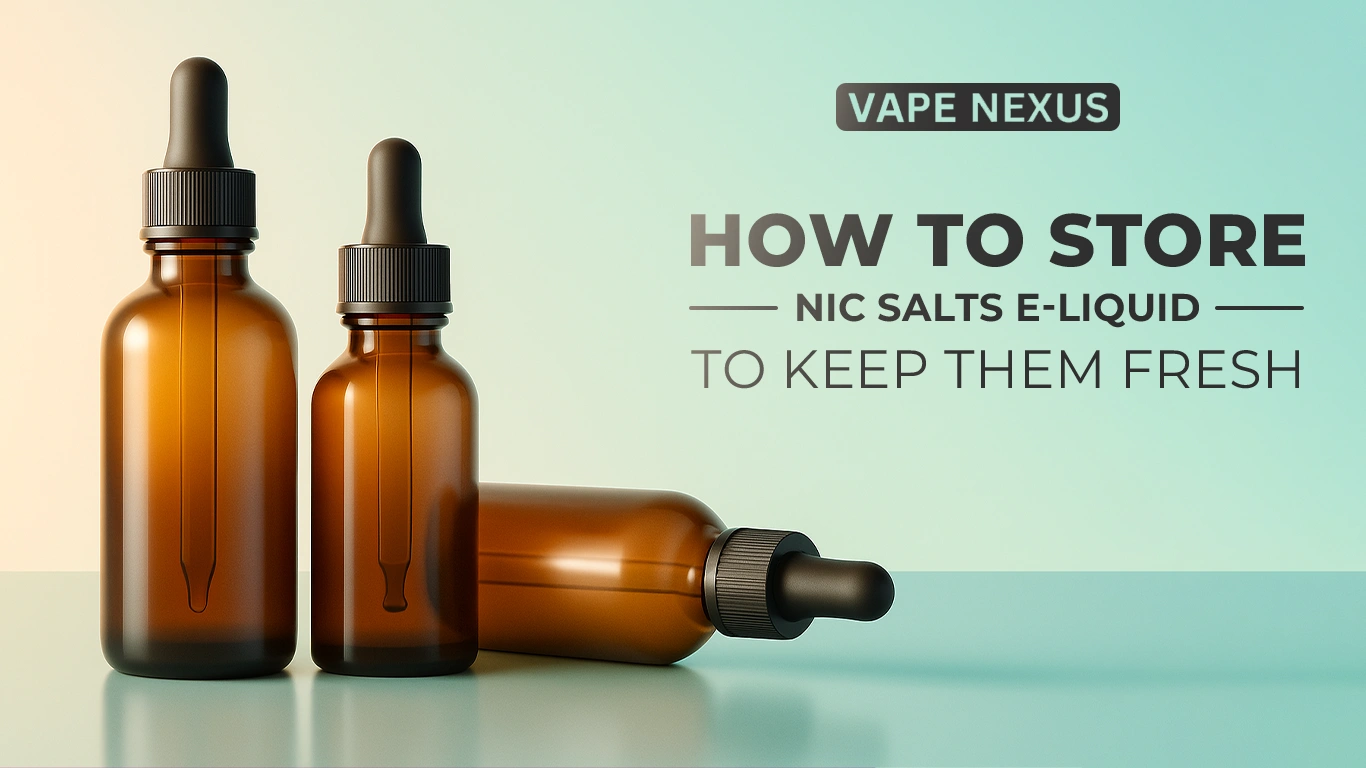Nic salt e-liquids are known for their smooth delivery, fast nicotine absorption, and intense flavour. But like all vape juices, their quality can degrade over time if not stored properly. Whether you’re a seasoned vaper or just starting with nic salts, this guide helps you store them the right way to maintain their flavour, strength, and safety.
Why Nic Salt Storage Affects Freshness
Nicotine salts are chemically more stable than freebase nicotine, but they are still sensitive to light, air, and heat. If exposed to the wrong conditions, your e-liquid can:
- Lose flavour intensity
- Become darker or thicker
- Feel harsh or bitter in the throat
- Lose nicotine strength
Storing nic salt vape juice correctly helps prevent oxidation, maintains a clean taste, and extends the product’s life.

Ideal Temperature for Storing Nic Salts
Keep your nicotine salt e-liquids in a cool, stable environment, ideally between 15°C and 25°C. High temperatures speed up chemical breakdown, causing:
- Discolouration
- Harsh taste
- Shorter shelf life
Avoid storing your vape juice in hot places like cars, sunny windowsills, or near radiators. Extreme cold (like freezers) can cause flavour separation, so aim for room temperature.
Protect Nic Salts from Light
Sunlight and UV rays can ruin the quality of your e-liquid. Even in closed bottles, UV exposure breaks down nicotine and flavour compounds. To protect your juice:
- Store bottles in a drawer, cabinet, or shaded vape box
- Avoid leaving e-liquid on desks or windowsills
- Use opaque or tinted bottles when possible
Keeping light out ensures your nic salts remain fresh and flavourful for longer.
Keep Bottles Sealed and Upright
Air exposure can lead to oxidation, making the e-liquid darker and harsher. Always:
- Tightly close the cap after each use
- Avoid squeezing excess air into the bottle
- Store upright to prevent leaks and seal wear
Upright storage also protects soft plastic bottles from pressure build-up, which is especially important in warmer environments.

Use the Right Storage Containers
When storing multiple bottles or bulk e-liquids, consider:
- Airtight vape cases
- Drawer organisers away from moisture
- Dedicated vape storage boxes with foam inserts
Avoid metal tins unless they’re lined. Never store near chemicals or food.
How to Spot Spoiled Nic Salt E-Liquid
Even with proper care, nic salt juice won’t last forever. Watch for these signs:
- Darkened colour compared to when new
- Unusual smell (chemical or stale)
- Changed thickness (too thick or watery)
- Weak or off flavour
- Harsher throat hit than expected
If any of these are noticeable, it’s best to replace the bottle rather than risk poor performance or damaging your coil.
Explore our full Nic Salt E-Liquid Collection to find your next favourite flavour, always fresh, premium-quality, and ready to deliver that smooth hit you love.
Conclusion
Storing your nic salt e-liquids the right way keeps them tasting great and working safely. Remember to keep bottles in a cool, dark place, away from air, heat, and moisture. Tight caps, upright storage, and the proper containers will help your favourite juices stay fresh from the first puff to the last.
Explore our Top 5 Nicotine Salt E-Liquids in the UK (2025) and find your next smooth, flavour-packed favourite to keep your vape sessions fresh.
FAQs
How long do nic salts last in storage?
Unopened bottles can last up to 2 years if stored properly. Opened ones should be used within 6 to 12 months for best results.
Can I store e-liquids in the fridge?
Not recommended. Cold temperatures can affect flavour balance and may cause condensation inside the bottle.
Why is my nic salt darker than before?
This is likely due to oxidation caused by air or light exposure. It’s still usable if the taste hasn’t changed dramatically.
Is heat worse than light for e-liquids?
Both degrade e-liquid, but heat causes faster nicotine breakdown, while light mainly affects flavour compounds.


